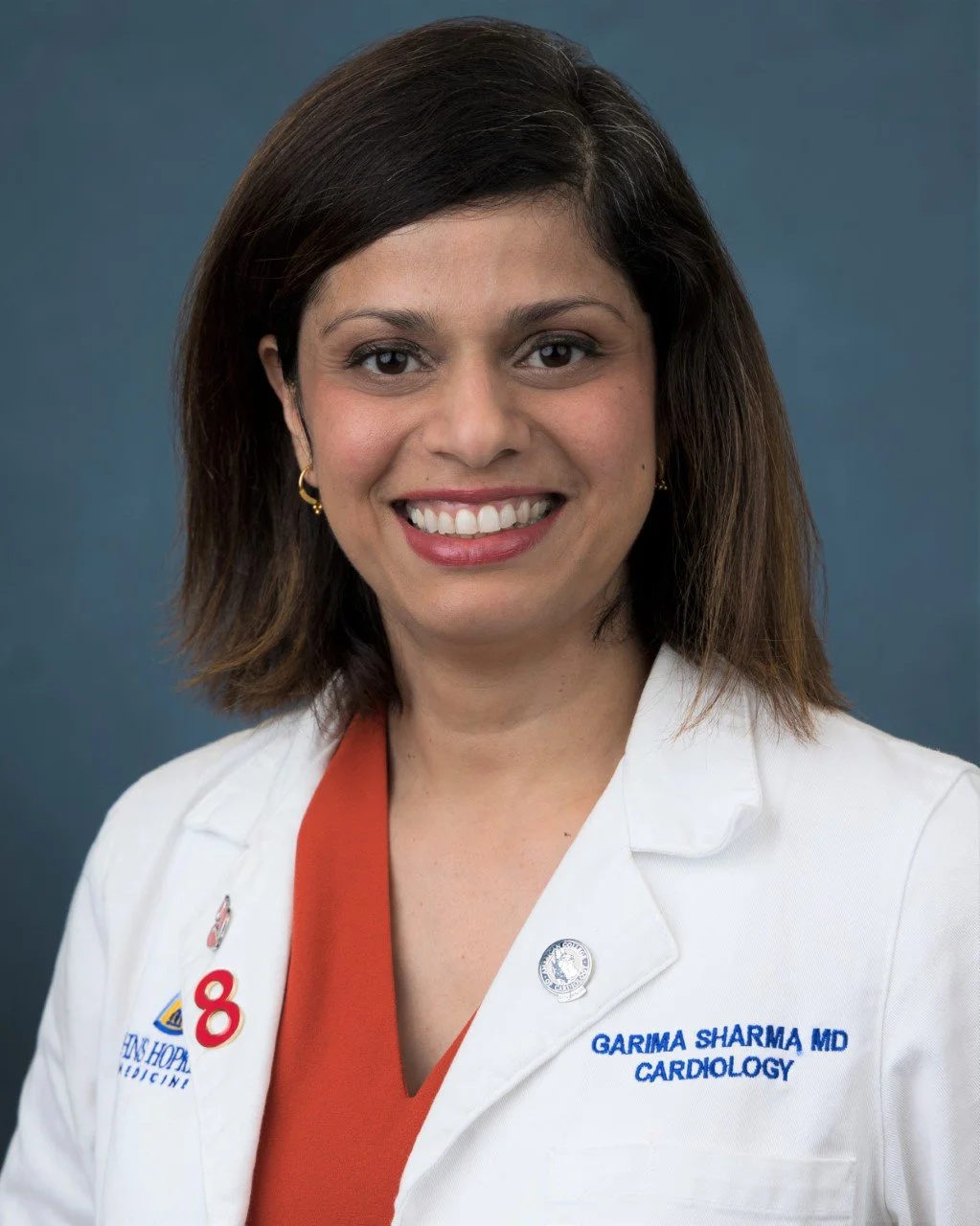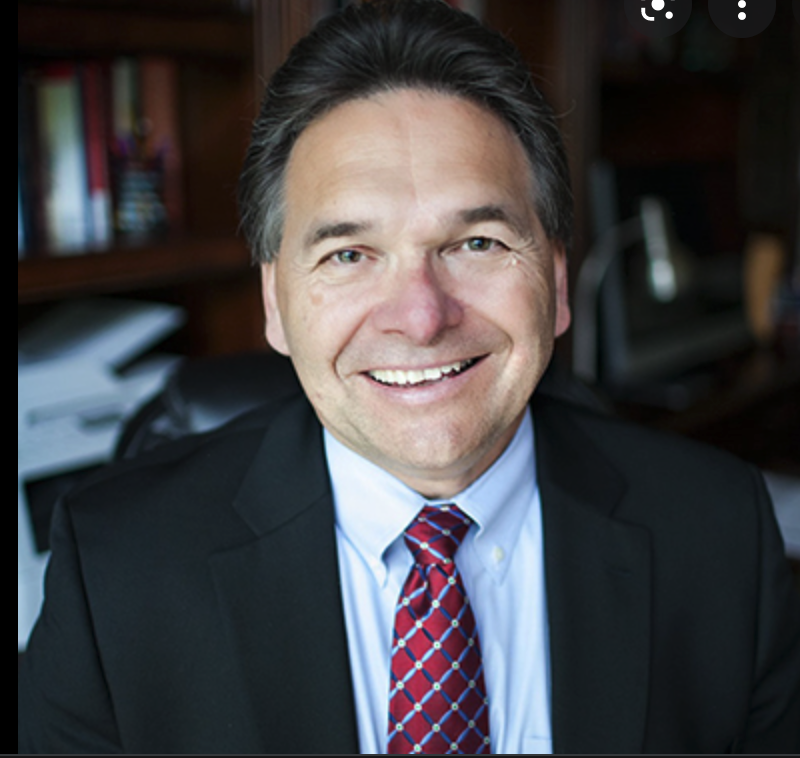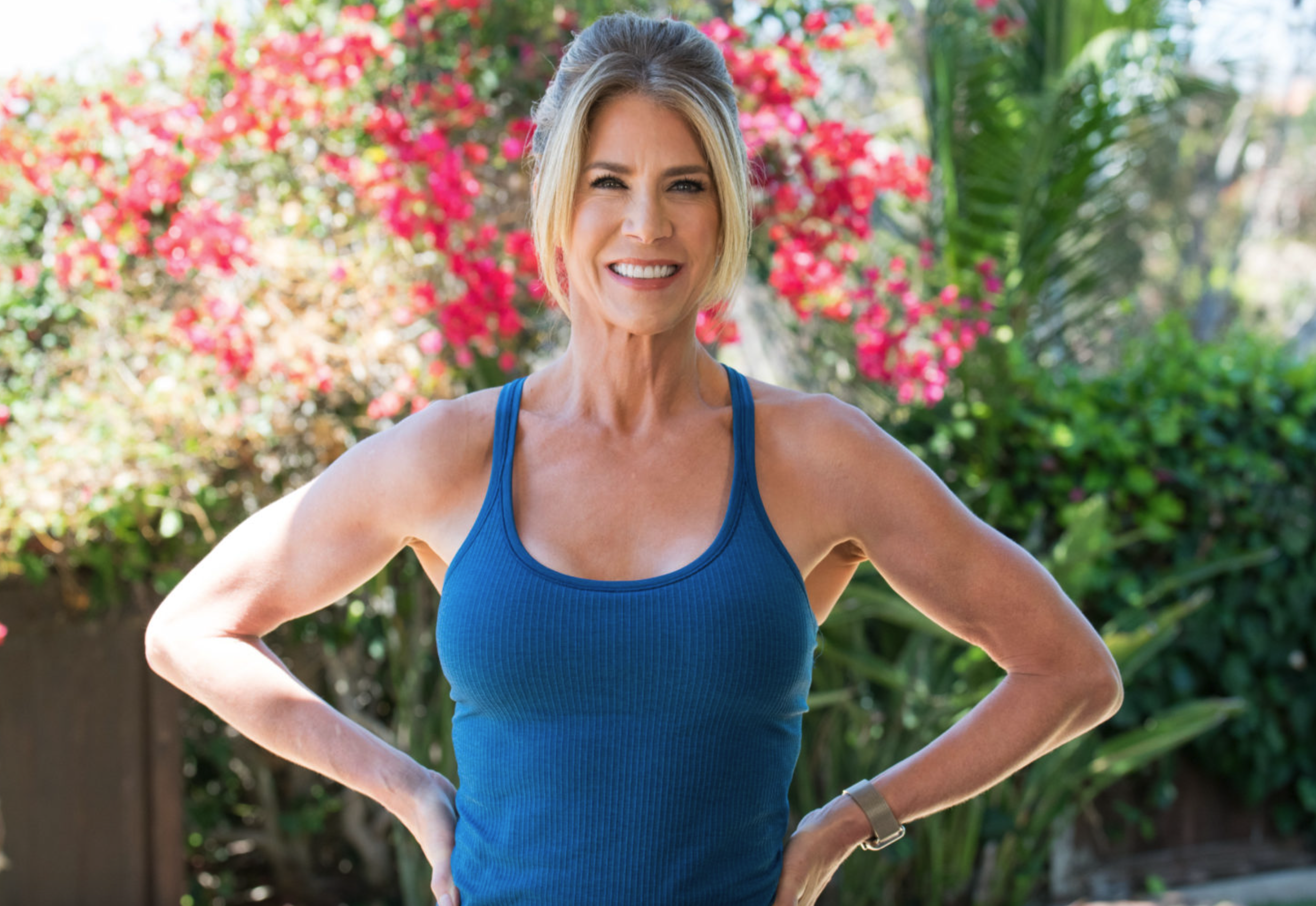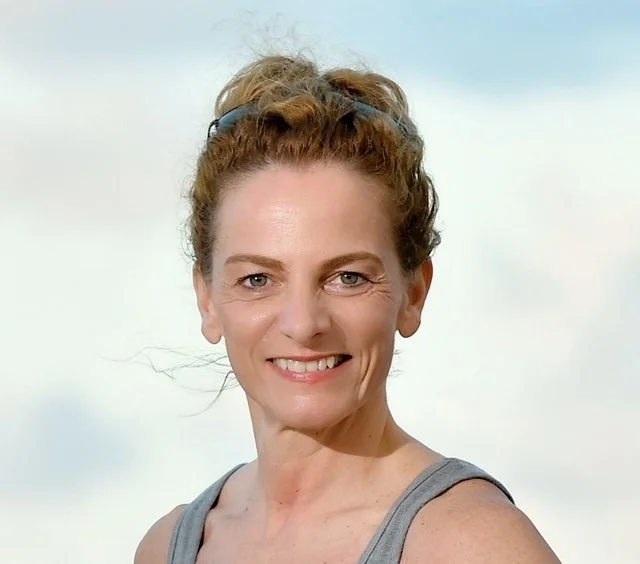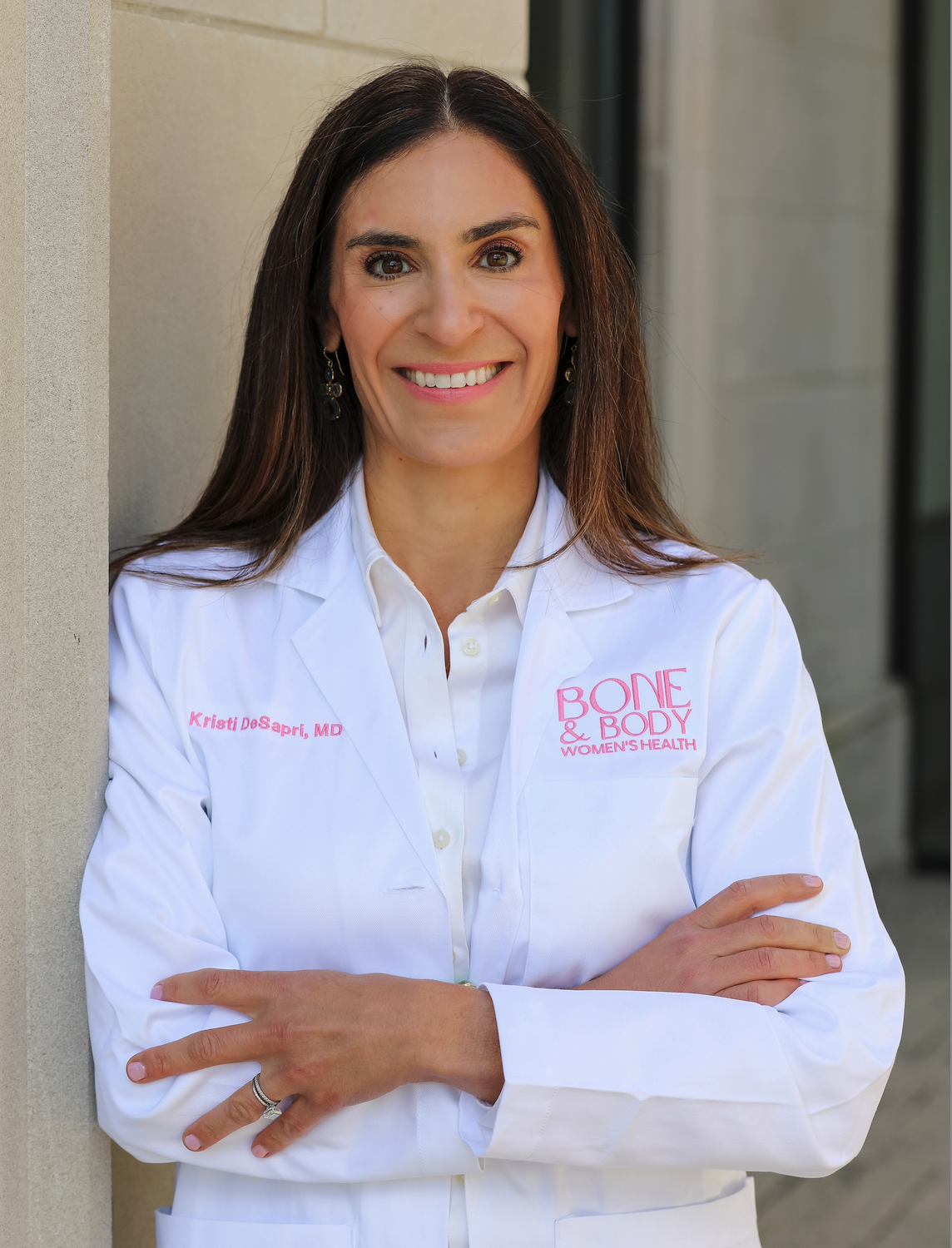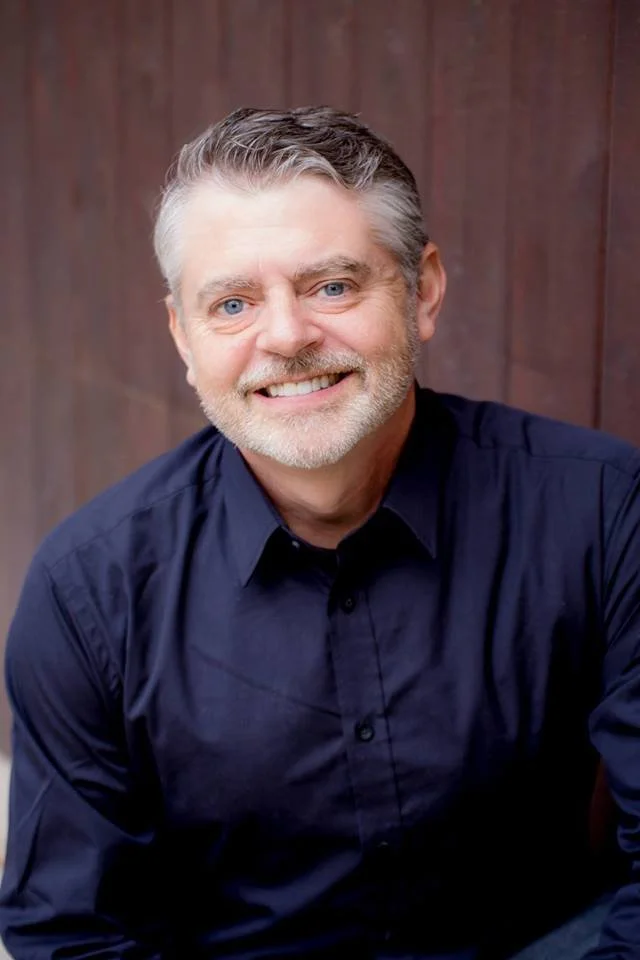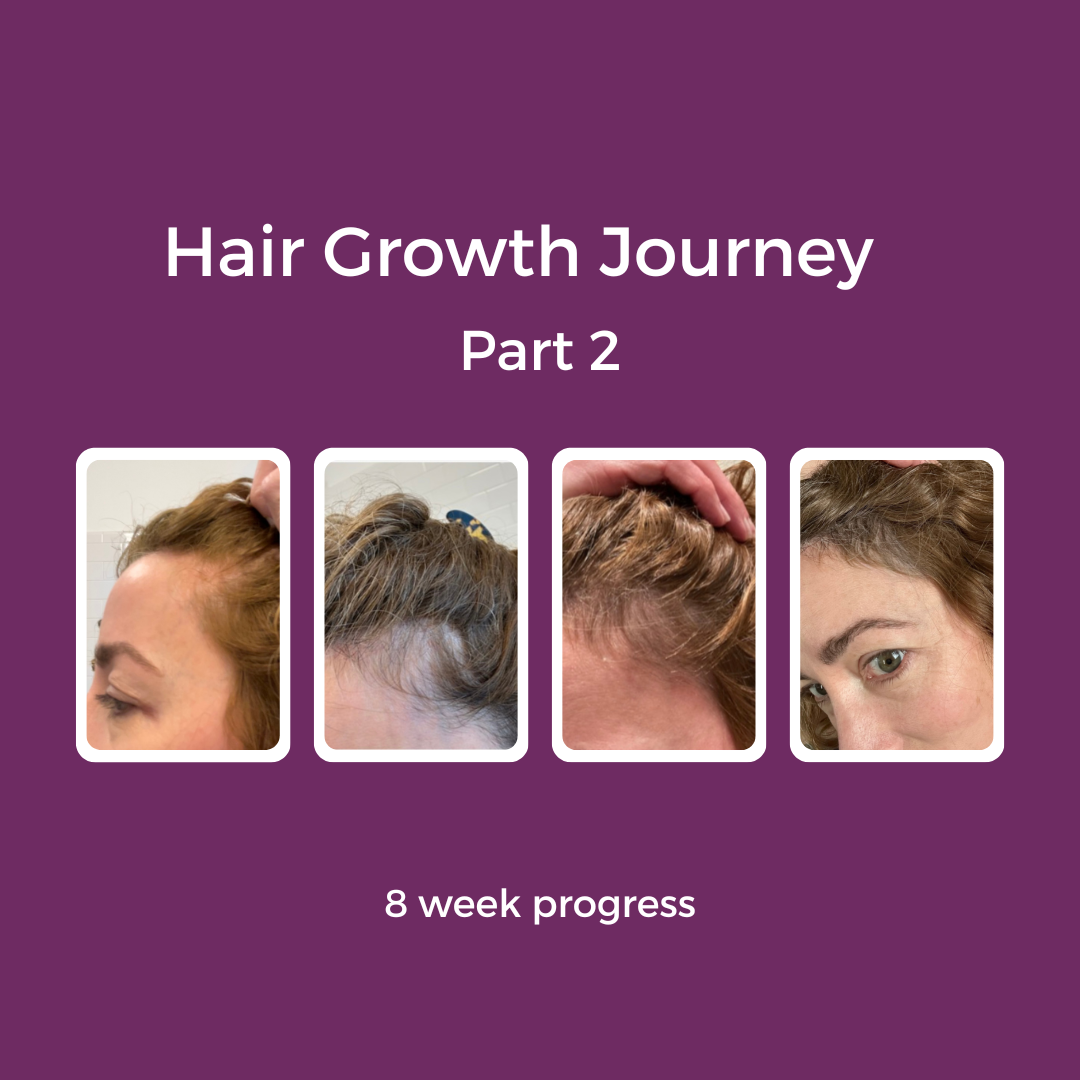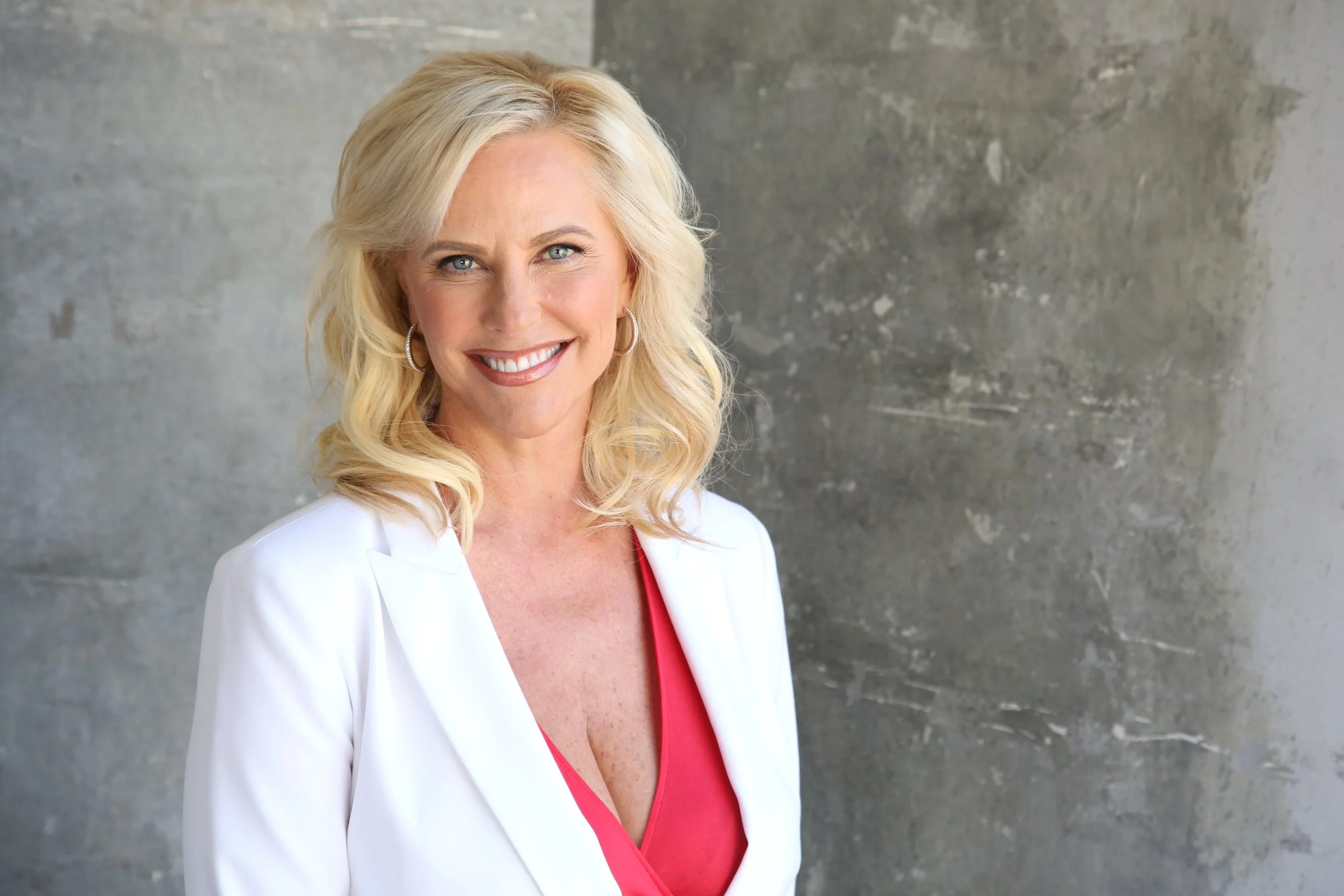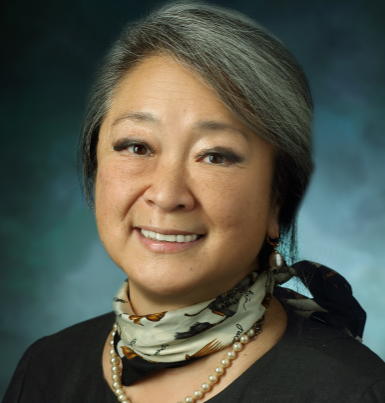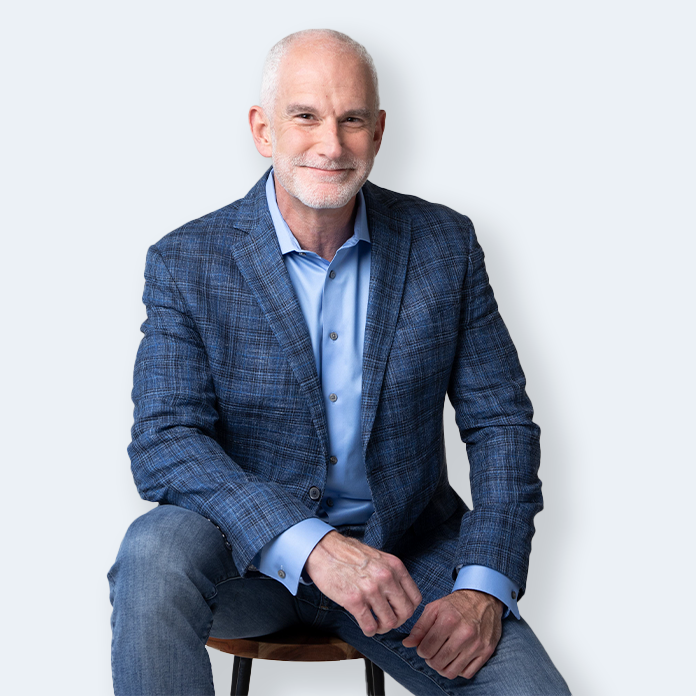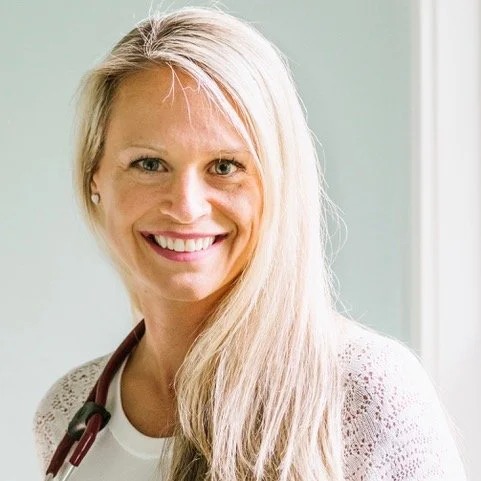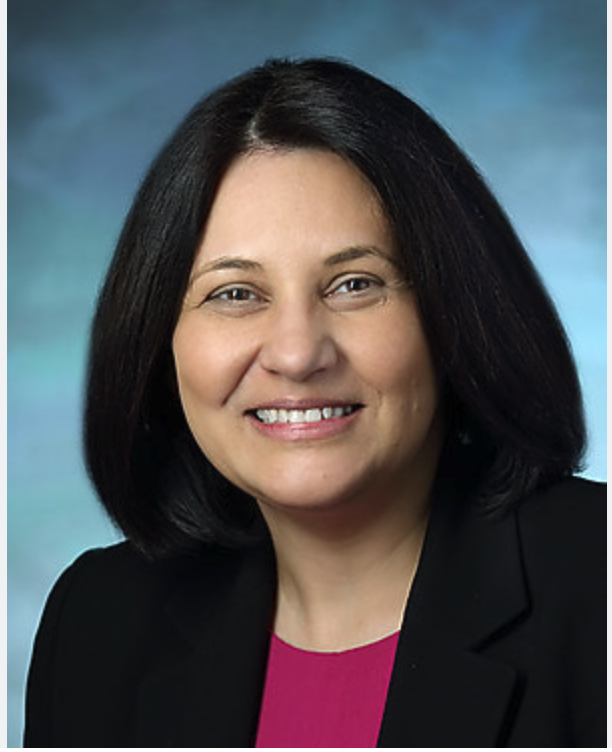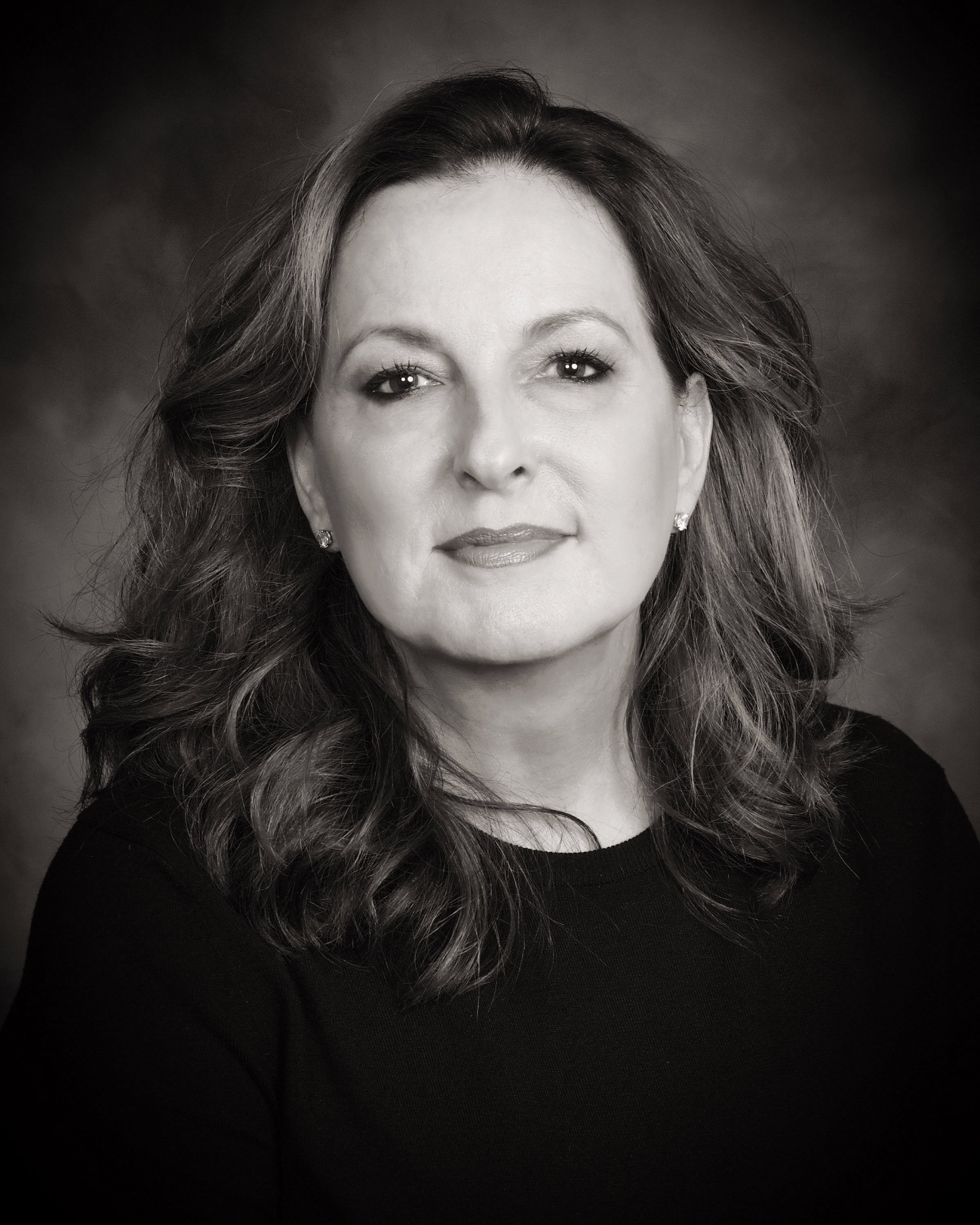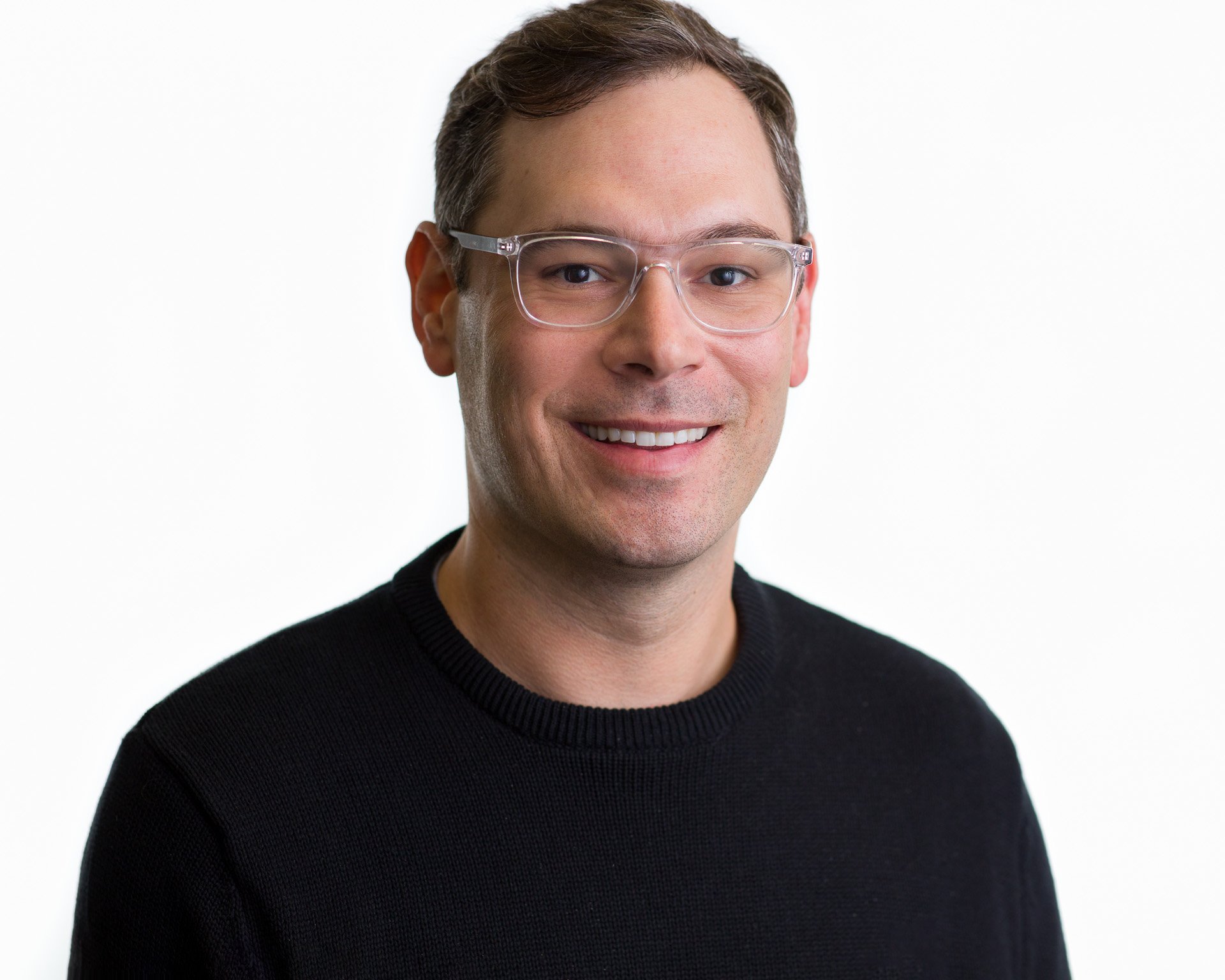Many midlife women fear getting breast cancer more than heart disease. The focus on women’s cardiovascular health, and their unique risk factors, is not talked about enough. Did you know that heart disease is the #1 cause of death for both women and men? Over 60M women in the U.S. live with some form of heart disease. Women present differently with heart disease, often ignoring symptoms. Women also have different risk factors than men when it comes to heart disease, menopause being one of them, and are often not screened early enough, or supported with a healthy, preventive lifestyle approach. Dr Garima Sharma MD, is a cardiologist who specializes in cardiovascular disease in Women and Preventive Cardiology and is the Director of Women’s CV Health and Cardio-Obstetrics, INOVA Health System. She shares her passion and expertise on heart health in midlife women on episode #57 of the Health Trip Podcast.
Read MoreHair loss can be caused by micronutrient deficiencies. Nutrients, such as vitamins D, C, and E, and minerals such as zinc, selenium, and iron, are all important for hair growth. Micronutrients are the nutrients our body needs in lesser amounts to grow and develop. One of the best ways to look inside your cells to see what your nutrient status is is by taking a micronutrient test. This test tells you if your cells are stable, borderline deficient, or functionally deficient in a wide range of nutrients. You then want to correct these intracellular micronutrient deficiencies so that your cells are optimally working. If you go back to biology class, you remember that the mitochondria inside your cells are the powerhouses of energy produced for your body. Without functioning mitochondria, you don’t have optimal energy being produced. Without optimal energy, you won’t have healthy hair growth. After all, you don’t need hair to survive. The only way to correct these deficiencies is through diet and supplementation. Learn more about this connection in episode #56 on The Health Trip Podcast, with my guest, Dr. Ronald Grabowski, a practicing Doctor of Chiropractic with over 40 years of clinical nutrition experience, who’s presented over 1500 seminars and lectures on nutrition throughout the United States and in Europe, publishing several articles and a textbook on clinical nutrition. In addition, he is a Registered Dietitian and his dietetic experience includes tenure at some of the leading hospitals in the nation: The New York Hospital, Memorial Sloan-Kettering in New York City (affiliated with Cornell Medical Center), Memorial Care System, and the University of Texas M.D. Anderson Cancer Center in Houston, Texas.
Read MoreWomen are feeling confused and frustrated as to why they are gaining weight when all other variables haven’t changed. They are still eating the same diet, and attending their usual exercise classes, yet, the weight is coming on. Metabolic flexibility is the body’s ability to utilize different sources of fuel for energy - either glucose and fat, stored body fat or fuel from food. Signs that one is metabolically inflexible are weight gain, cravings between meals, and low energy. Knowing what metabolic flexibility is and how it pertains to your overall health is important to your longevity plan. Listen to episode #55 on the Health Trip Podcast with me and JJ Virgin, a triple-board certified nutrition expert.
Read MoreAnother AMA episode on women’s health. My guest, Dr. Carla DiGirolamo, is a double Board-Certified Obstetrician/Gynecologist and Reproductive Endocrinologist who specializes in the care of reproductive-age and mid-life women. She is a North American Menopause Society Certified Menopause Practitioner (NAMS). What really sets her apart, is that she’s also an athlete, fitness trainer, and nutrition coach. We dive into midlife weight loss, hormone replacement therapy, body composition, workout nutrition, and what the best form of exercise is for menopausal women. Tune into the Health Trip Podcast, episode #54 to optimize your health and fitness goals.
Read MoreWhat does it take to feel your best? Midlife is defined as being between the ages of 35-60 yrs old. This is when we start to see and feel changes, and not in the direction we want. Brain fog, forgetting where we left our keys, more trips to get Botox, belly fat, dreaded hair thinning, chronic fatigue, horrible sleep, and, sadly, low to no libido – the list goes on. As we age, the doors to chronic disease open up: heart disease, Alzheimer’s, type 2 diabetes, and cancer all become real possibilities for most of us. My guest today is going to help break down the science of aging, what we need to pay attention to, and how to execute it all so that we can be optimized, midlife, human performance machines. Dr. Bryan Stepanenko MD, is a board-certified Family Physician and Functional Medicine practitioner certified by the Institute for Functional Medicine (IFMCP). He works alongside Dr. Gabrielle Lyon and serves as her lead physician and educator for her clinical practice (Young Medical PC) and the Institute for Muscle-Centric Medicine.
Read MoreA PubMed publication stated that women are most likely to be diagnosed with osteoporosis 10-15 years post-menopause, which would make them about 65. At that point, treatment will be a band-aid. It certainly won’t be preventive. Today I am focusing on osteoporosis and midlife women. It’s called the “silent disease” because you can’t feel your bones getting weaker. The National Osteoporosis Foundation offers these facts:
-1 in 2 women will break a bone due to osteoporosis after the age of 50.
-A woman’s risk of fracture is equal to her combined risk of breast, uterine, and ovarian cancer.
-24% of hip fracture patients age 50 and over die in the year following the fracture.
-A bone density test is the best way to diagnose osteoporosis and determine a treatment plan.
-They recommend you get this test at age 65- which is when most health insurance companies will pay for it.
My guest today is a bone health and menopause expert who’d going to break it all down for us today. It’s definitely a topic not talked about enough until it has to be, which is often too late. Dr. Kristi Tough DeSapri is a board-certified internist specializing in midlife women’s health. After fellowship training at the Cleveland Clinic, she has worked in private practice and academic medicine for over 13 years, including being the director of the Northwestern Women’s Bone Health program at the Center for Sexual Medicine and Menopause at Northwestern Medicine in Chicago.
Read MoreHave you ever wanted to ask your primary care physician, or OBGYN, certain questions about your vagina or sexual health and bailed out? Or asked them questions only to have them tell you it’s in your head or dismiss you altogether? Dr. Kelly Casperson, MD, and I sit down for my first Ask Me Anything episode on women’s health. Dr. Casperson is a board-certified urologic surgeon practicing in Washington State, author, sex educator, and top international podcaster whose mission is empowering women to live their best love lives. We dive into topics on hormone replacement therapy, menopausal sex, chronic UTI’s, and pelvic floor health. Listen in on the Health Trip podcast, episode #51.
Read MorePCOS, or Polycystic Ovary Syndrome, is one of the most common causes of female infertility, affecting 6% to 12% (as many as 5 million) of US women of reproductive age. There’s no known cause of PCOS, but several mechanisms have been linked to this syndrome, such as hormonal imbalance, insulin resistance, and genetics. Women with PCOS can develop serious health issues, especially if they are overweight. Most women that I work with who have PCOS are in their childbearing years. Episode #50 on the Health Trip Podcast focuses on PCOS and menopausal women. PCOS never goes away. Once properly diagnosed, it’s yours to keep your whole life. Menopause is challenging enough. Adding PCOS to the equation is even more challenging for women.
Read MoreIn Part 2, I share my ongoing personal journey of hair loss and hair growth. After a year of amazing hair growth, and very little hair shedding, I made one change that triggered a massive shedding, bringing me back to where I was over a year ago. With my oldest son's wedding in six months, I decided to try two newer modalities on the market and am sharing my experience with you.
When working with my clients on their hair growth journeys, as well as my own, I work with three buckets: lifestyle interventions, personalized supplement protocol, and a medical component with a well-versed doctor in hair loss. When my massive shedding started again due to my one change, I knew I'd be able to grow my hair back because of my healthy foundation and personalized approach to diet and supplements.
Read MoreDid you know that having regular sex positively influences your overall health and longevity? Studies have shown that both men and women who engage in regular sexual activity have stronger immune systems, reduced anxiety, feel happier, and protect the health of a man's prostate. Sexual activity and orgasms release beneficial chemicals in our body that supports bonding with others and a feeling of self-worth. Regular sex may also support a woman's transition into menopause and beyond by minimizing adverse side effects, such as vaginal atrophy and dryness. Susan Bratton, a sexpert and advocate for all those who desire intimacy and passion their whole life long, joined me on The Health Trip Podcast, episode #48, to talk about midlife lovemaking techniques.
Read MoreAs women move through menopause, their hormone levels drop. Estrogen, progesterone, and testosterone are the three dominant sex hormones that matter most when it comes to having hot, pleasurable, juicy sex. Some women cruise through menopause without a hitch, but most women experience adverse physical, emotional, and psychological issues. Menopause can literally put the brakes on your sex life. Susan Bratton, "Intimacy Expert to Millions" is a champion and advocate for all those who desire intimacy and passion their whole life long. Susan has been featured in the New York Times and on CNBC and the TODAY show as well as frequent appearances on ABC, CBS, The CW, Fox, and NBC. Susan shares her expertise on all things related to menopausal sex, including what is actually happening to your vagina during menopause, different regenerative therapies that you may want to try, the best sex toys to use, and myths around sex as we age well into our older years.
Read MoreThe average age of a woman in menopause is 51 but can range between 40-58 years old. We are going to spend a third of our lives in menopause so why not make it as vibrant as possible? There is no need to suffer during perimenopause, menopause or post-menopause when we have options to support us. Perimenopause and menopause may include a variety of symptoms such as hot flashes, brain fog, low libido, anxiety, hair loss, and weight gain. Menopause also opens the door to an increased risk of chronic diseases, such as cardiovascular disease, stroke, Alzheimer’s, osteoporosis, and metabolic syndrome. Dr. Wen Chen M.D., associate professor of clinical gynecology and an associate professor of oncology at the oncology center in the Johns Hopkins Medicine Department of Gynecology and Obstetrics, helps current and future doctors, and patients, better understand what menopause medicine is and how to better support women going through this challenging time in their lives.
Read MoreThe first line of defense for weight loss is always lifestyle interventions and personalized supplementation. But, what if you are doing everything right and you still cannot shed those pounds? The next line of defense for weight loss may be medical weight loss interventions. Medical weight loss drug options include Semaglutide, Wegovy, Ozempic, and Trulicity. These are safe, effective, and proven medical weight loss interventions that are used for type 2 diabetics but are now being used more and more for weight loss. They are called GLP-1 receptor agonists and my guest today, Dr. David Yablonsky MD, is going to put this all in layman's terms for you to understand what they are and how they work.
Read MoreOnce women go through menopause, their risk of cardiovascular disease and having a stroke increases – heart disease is the #1 killer among women. Our risk of Alzheimer’s, osteopenia, osteoporosis, urinary incontinence, sexual dysfunction, and belly fat all increase exponentially as well. Increased belly fat leads to insulin resistance, which leads to pre-diabetes, type 2 diabetes, hypertension, and again, heart disease. Learn how bio-identical hormone replacement helps to support longevity.
Read MoreYou are born with your genes and those don't change. How you choose to live your life does impact your gene expression. Eating an unhealthy diet, not getting enough sleep, being chronically stressed, and not exercising are lifestyle factors that influence our risk of developing breast cancer. Outside of living an unhealthy lifestyle, women must look at their hormone levels as they age. About 90% of the women that I have had the honor to work with have never had a conversation with their OBGYN about hormone replacement therapy, or bio-identical hormone replacement therapy, and about 50% of them have never had their sex hormone lab panel taken.
Read MoreWhen I talk about hair loss, you’ll hear me focusing on gut health, micronutrient deficiencies, genetics, diet, stress management, and exercise as the core foundations of building a better platform for healthy hair growth. Scalp health is equally as important. Think of your scalp as the garden bed, the soil, upon which healthy hair growth is made possible. Some people have dry or oily dandruff, eczema, psoriasis, or alopecia areata scarring, inhibiting hair growth. Most of us are confused about which hair products to buy, which to avoid, how often we should wash our hair, and does hair styling matter when it comes to growing hair.
Read MoreOne of the biggest challenges my clients face is getting to a gym, or creating a home-gym, where they can lift heavy and build lean muscle mass. They make time to walk 20 minutes a day, they ride their bikes around the neighborhood, or they gravitate towards a treadmill or step machine. I’m all for moving, and I’m all for finding that form of exercise that you love, because then you’ll enjoy doing it. The science speaks and weight training, or resistance training, is the best form of exercise you can engage in for overall health, hands down.
Read MoreHealth begins in the gut. If you’re a gardener, then you know that healthy soil is crucial to growing healthy plants. Think of your microbiome as the garden from which your overall health grows. The microbiome is the community of microorganisms, including fungi (the mycobiome), bacteria and viruses, that exist in our digestive tract, skin, mouth, and vagina. These microorganisms change in response to a host of environmental factors, such as stress, exercise, diet, medication, toxins, and other exposures.
Read More

